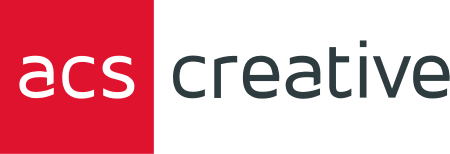Is Your Digital Marketing Agency a Good Fit?
Must-Haves for a Successful Partnership
Thinking about hiring or changing your digital marketing agency? You’re not alone. Last year the total value of new accounts in the ad industry was more than the previous three years combined, according to a Morgan Stanley study. Analysts said two trends contributed significantly to this increase:
1. Existing customers moving away from large, less agile, more expensive online marketing agency to smaller ones
2. Customers who didn’t previously use an agency needing help with digital media marketing
For businesses in one of these two boats, we’ve put together this checklist of what to look for when hiring your new, or first, marketing agency.
Digital Marketing Agency Credentials
Reputation.
You may be in a hurry to get the ball rolling, but that’s not a good reason for skipping your due diligence. Search online and in ad industry publications for what’s being said about the agency. Check their website for awards, testimonials, etc. Ask other business owners in your network which agencies they use and why.
Of course, you will also check the obvious resources, such as the Better Business Bureau, for warning signs. And, though we hate to sound biased, think long and hard before hiring an overseas agency. If anything goes wrong, you have little or no recourse. Even if they’re reputable, there are often problems with communication, due either to language barriers or time zone differences, or both.
Team.
If the digital marketing agency is a relatively new start-up, you may not find much about them. In that case, check the backgrounds of their team, starting with the bios which should be proudly displayed on their own website and moving on to LinkedIn if you need a more in-depth picture. They may have big-time experience which they are now offering direct to you … probably at a fraction of what their former employers with the high overhead would charge.
Proof.
As you narrow down your list of candidates, begin analyzing the results they’ve delivered to other clients. Ask for customer references and case studies.
The most important question to ask is whether the agency solved the problem it was presented with. If the challenge was to increase sales, then the case study should provide results in terms of dollars, not website hits. If the goal was to increase the brand’s social media following, the results should show the number of followers or “likes”, not number of blog articles or videos posted.
Also, what does their own website look like? Is it well designed and easy to navigate? Is it consistently updated with new content (such as this blog)? Is it easy to find on Google if you search for “web marketing companies” + your geographical area? Does it offer easy conversion routes with calls to action, links to the contact page, etc. These are all signs that the agency knows what it’s doing.
Red flags.
Beware of a digital marketing agency who promise instant results. It just doesn’t work that way in online marketing. It’s a game of attrition as your brand populates through the internet; the pattern for almost all aspects of digital marketing is slow but steady growth for the first 6 to 12 months, then a big leap. Quick fixes are usually the result of dodgy tactics such as black hat link building. Once the search engines discover and impose penalties on your website for these tactics, you’ll spend more time and money recovering than you did on the original campaign.
Relevance
Clients.
You need an agency who understands your business and your needs. The best way to get that with minimal time wasted on a learning curve is to see if they’ve already worked with other clients in your industry or similar fields. Also, how does the size of their clients’ business compare to yours: approximately the same, bigger or smaller?
Culture.
Never overlook the intangibles in choosing what will hopefully be a long-term partnership. How do they present themselves, both on their website and in person? Will you feel comfortable with their communication and work style? Are they transparent about their processes and fee structure? Do they listen as well as talk? If you’re not on the same page, it might not be a great fit.
Expertise
People.
Your agency should offer a diverse team of experts who contribute a full spectrum of skills and talents to the process of creating successful online marketing: design, brand development, SEO strategy, website building, etc.
Tools.
The online marketing agency environment is evolving at lightning speed; it’s critical to utilize the most recent technologies and strategies in order to stay on top of the game (and your competition). We’re not just talking about the tools needed to research and execute an effective online marketing plan. The agency should also have the ability to measure its marketing effectiveness, including website and social media analytics, SEO rankings, e-blast performance and online reputation tracking.
Process.
How does the agency go about getting your message out into the digital world? The first step for them should be learning what your message is, not just dreaming up one for you. Before they even begin to plan a strategy, there should be an in-depth discussion of your business, customers, market and goals.
Is there a procedure in place for timely production: setting deadlines, obtaining approvals, implementing decisions? Otherwise, your project could drag on indefinitely.
Price
Not too high.
This is one of the most frequently cited reasons for clients migrating from large to smaller agencies. You certainly should expect more reasonable pricing from an organization that has less operating costs than a Madison Avenue giant.
Not too low.
On the other hand, extremely low pricing is almost always a sign of poor quality. Spending less money up front but getting bad results will turn out to be more expensive than hiring good quality expertise to do the job right.





